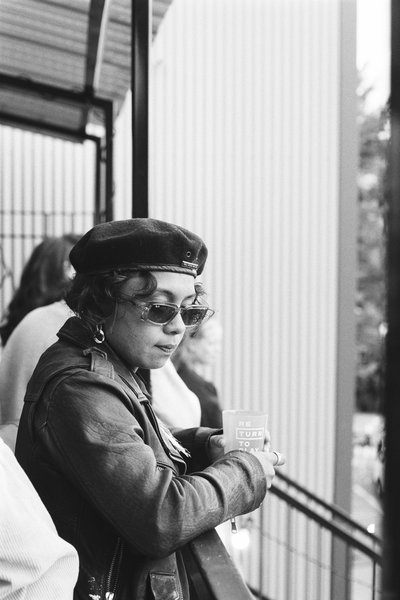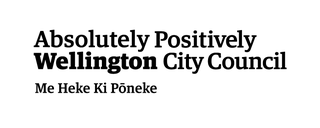15 October 2024
Pōneke-based Maarire Brunning-Kouka is one of two commissioned artists for the Wellington Jazz Festival, composing the captivating soundtrack for Oro Māia, a show featuring poems by acclaimed American poet and activist Dr. Maya Angelou, translated into te reo Māori.
Featuring a cast of talented wāhine toa, Oro Māia is a brand-new work and will be performed in Wellington for the first time on Saturday 19 October after having its world premiere at the Te Tairāwhiti Arts Festival.
We caught up with Maarire to chat about the genesis of the project and her creative process as a commissioned artist.

What can audiences expect from Oro Māia?
Many different disciplines of art coming together, joining together to whakamana (empower) and to uplift and to acknowledge the beautiful work of Dr Maya Angelou. Thankfully we have Ruth Smith who did the te reo interpretations of the poetry involved. So we're going to get a bit of poetry, some beautiful performances from superstars, some absolute wāhine toa, who will carry the weight of this poetry. And then there's a band that'll be making some sounds… tying it all together.
I know there are seven poems that have been selected for this performance. Can you tell us about your creative process, in marrying the music with the poetry? Did one poem draw everything together, or did you look at all of them and find a vision for the work?
I was lucky enough to have a hui with Ngapaki and Teina [the Directors] on Zoom. Ngapaki had already laid out a bit of a process for us, for me, which was awesome because it was a little hard to understand how much effort to put in. [T]here are so many art forms being woven through this, I didn't want to flood it. There needs to be a balance.
The first waiata, which is the opening of the show at the moment, is called “Arai te Po” which in my understanding is te orakohanga (beginning/origin). Te tangata - the creation of people, of beings, of us. It's the creation of genealogy. It's the story of Maui trying to be immortal.
The second waiata is “Te Rua he Nei Takurua” which is that feeling when you have your period, the swelling, the pain... There's a lot of stuff happening within your tinana (body) and this is a tapu (sacred) space for wāhine. It's definitely a heavy song, but the beauty of the menstrual cycle is that it's a time for wāhine to grieve. And grieving is one of the most important parts of being a human and being alive.
The third song is “Te Awa Atua” which is the release, the flowing of a river, the release of blood and the relief that comes with it when you can let go and finally grieve.
The last song is “Rongoa” which is like medicine, however you want to take it, which is us being alive. It's your whakapapa, your future.
I was very fortunate to be a part of that korero and having Ngapaki running through her ideas for the show and what it might look like. [O]nce there's a band playing, there's going to be a whole new perspective.
When you composed the music, how did you tie all those ideas? Is there a theme running through musically in terms of the sounds that you're using, or the instruments?
I'm going to have quickly talk about the band here... I've got Cory Champion on the drums; I've got Johnny Lawrence on the bass. I wanted those two specifically because they're so solid, absolute pros. Because we're not making music - it's more like atmosphere. There's more textures - we're making soundscapes - so I needed the bass and drums to be solid to hold it, to anchor us.
I've got Ensai August on percussion, keys, taonga puoro, I have Te Kahureremoa on tāonga pūoro. [I’ll be singing], I'm going to try and get the sister to sing with me as well.
I have Maia Wharehoka on classical guitar and Hayden Nickle on violin and viola. The rest of us are just adding bits and pieces to the story that will be woven through the different waiata. There'll be some singing. I asked the cast, and I asked Ngapaki, because I don't really play any instruments. I make music by my ears. [T]hey said that they would like to hear me sing. So, I've kind of jotted in myself a little bit here and there, but I'm taking care of all the sound effects and the birds and the ground noises and digging noises.
What's your vision behind Oro Māia and the music?
My biggest thing at the moment is to akiaki (encourage) the poetry, I think the poetry is the most important thing. I have to understand what the poems are about, not only in English, but also in te reo, because they're not entirely the same. It's interpretation, really.
And then [the music also has to] carry our wāhine who are performing these poems, making sure that they feel supported. [W]e're on stage with them, and some of them want sounds during their pieces, but we need to ensure it's not going to disrupt them or take them out of where they're going with the poetry. Musically we're there to ensure the show travels and the words travel safely.
What inspired you in creating this work? Is there a specific style of music that has contributed to it?
I'm a ranger by trade, so being out in the ngahere (forest) is my number one love, I understand it, and I hear it in most of my music. So, when Ngapaki and Teina came to me with their idea of talking about atua (gods), talking about ikura (menstruation). I knew exactly what I could offer. And that is the bush, is the taiao, the environment, it's the moana, the birds, especially if we're going to talk about atua. Birds are great messengers for us. They're great signifiers of changes of mood, of events that could take place. So, I think the idea of hearing and understanding what you're hearing is what I'm trying to do with this piece.
Have you faced any challenges putting this together so far?
Heaps and heaps of challenges. But I love a challenge, so bring it on. It was really hard for me to try and figure out, sound wise, what I was up to, especially feeling like I'm not in the wrong lane. But once I started focusing more on the poems, I [had more of an] understanding, and felt I could contribute more.
What's your process for marrying together the lyrics and the poetry with the musical aspect of this work?
I'm a bit of a freak when it comes to making stuff. I got paper all over my wall. I got drawings all over my windows and my mirrors. I was obsessing about the words for a long time, especially because I haven't heard a wahine speak them. [I]t was really hard to make sounds for something you haven't heard. I don't learn by just reading. I've got to put my whole foot in it. It's a lot of obsessing.
I watched a lot of interviews with [Dr] Maya Angelou doing a thing, but I can't get too caught up in that, because it's not that poetry anymore. It's in te reo Māori. I've done a lot of pacing in my house. Lots of walks and lots of conversations with my friends and band members trying to tie it all together. And then once I feel like I got at least one song, at least I understand one song, then go hard into it until it's finished, and then I can move on. Yeah, it's bit messy to be honest!
What does Oro Māia mean to you?
The divine feminine? Wāhine, the beauty of it, the weight of it, the ways I use the importance of being a woman. The things we do every day, the people we bring up, the stuff we do in order for things to flow well, in order for life to flow well. I think this show makes time for people to see the many layers that wāhine hold and shed and then pass on to their babies.
How has the experience of writing this work affected you as a musician?
It feels like I've only just made sense of what my role is as an as an artist. And then this comes along. Tama [Waipara – Festival Co-Director and Co-Executive Producer of Oro Māia] turns up with this big dream, this big idea and I'm thrown into the deep end. But it's not like it's scary and unsafe; it's straight up trust. It feels like it's time for me to step up and take responsibility as an artist, to try new things and step out of my comfort zone. Things need to evolve. There's no point in gigging and recording and recording and gigging forever. I need to try new things. I grew up in theatre, so I'm a theatre baby and it made sense for me to be a part of this.
I'm still figuring it all out, but it's fun. Moving fun. And that's the important thing - to love what you're doing.


